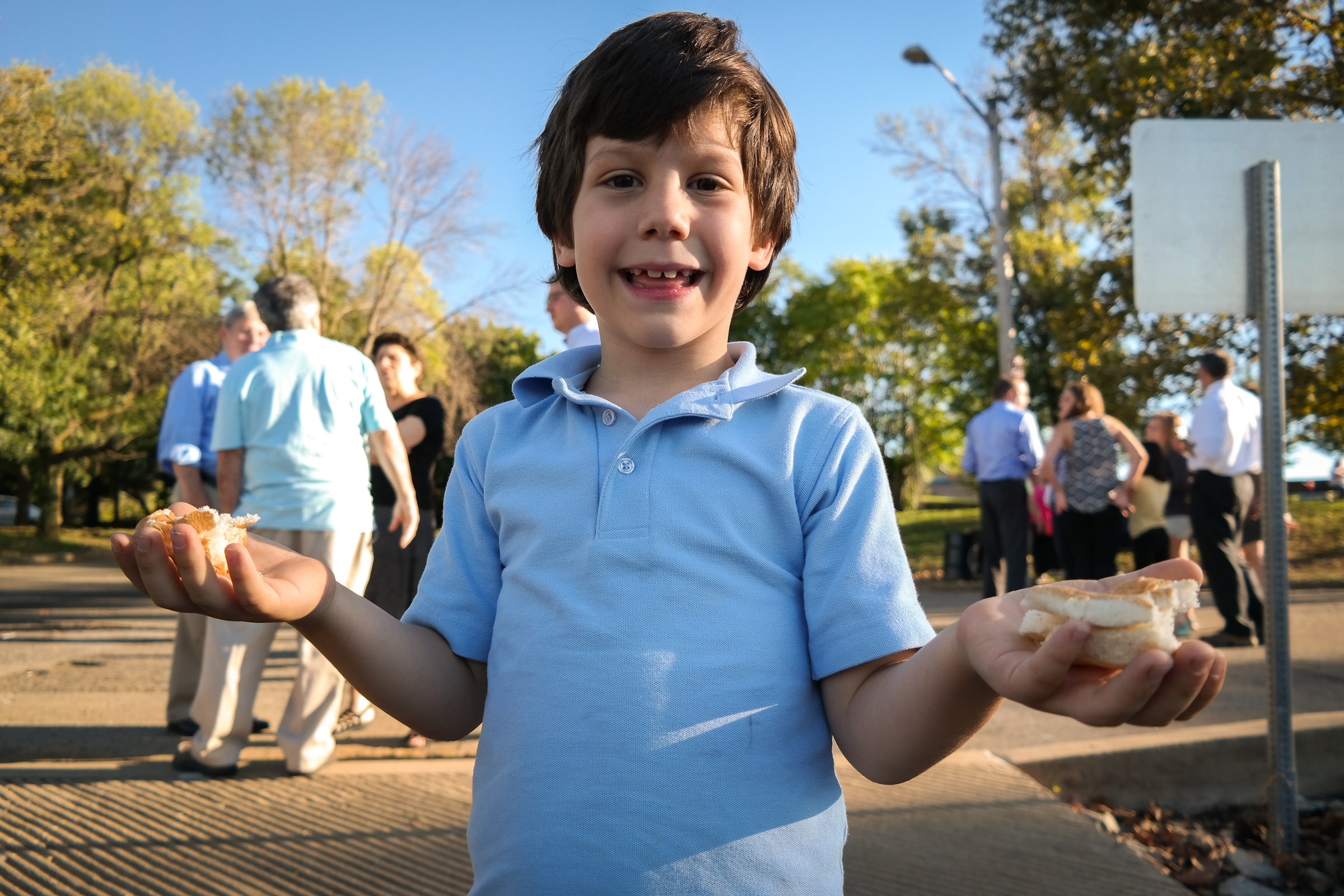This story was originally published on September 16, 2015.
Earlier this week, Jews from around the world celebrated Rosh Hashanah—the Jewish new year. Down on the Monongahela River, by the busy 18th Street boat launch, people from Temple Sinai in Pittsburgh gathered for a service known as Tashlich. It’s a simple ceremony, where water plays a timeless spiritual role.
A sign at the 18th Street boat launch near Pittsburgh’s Birmingham Bridge explicitly states “DO NOT FEED THE DUCKS AND GEESE.” And technically speaking, the 70 or so people gathered here tossing bread into the Monongahela River, triggering a feeding frenzy in the water, aren’t doing that. The bread they’re throwing is just a symbol: a spiritual stand-in for the sins and baggage from the past year. And if the bread/sins can make it past the gauntlet of water fowl, the water, according to scripture, will carry them away.
In the Jewish ceremony of Tashlich, celebrated in the afternoon during Rosh Hashanah, the Jewish new year, water is essential. But there’s apparently some flexibility as to what form it takes. One congregation in New Jersey, for instance, found enough spiritual satisfaction throwing leftover bread into the path of a running garden hose behind the synagogue. The Temple Sinai group gathered today on the ‘Mon’ was apparently looking for a little more authenticity. At least as much authenticity as can be wrestled from a setting where the roar of passing jet skis and the splash of boats being launched into the river are a constant backdrop. But no one seems bothered by it. Jews, Rabbi Keren Gorban explains, are used to being mixed in with lots of other people. And Rosh Hashanah, at the end of the day, is all about having a good time—which both the boating and New Year’s crowds are presently having riverside.
LISTEN: “Celebrating the new year on the Monongahela”
Under the guidance of Rabbi Jamie Gibson, Tashlich is a pretty relaxed religious experience anyway. With a guitar strapped to his chest, he leads a loose semi-circle in moody, familiar songs until enough of the people from his temple trickle in to get things going in earnest. The holiday scripture and prayers are read, followed by a little more singing. To keep things fun, everyone takes turns reading from a list of “appropriate” types of bread to cast into the river based on the variety of sins: For arson, toast. For bad moods, sourdough. And so on. The corny jokes get a few laughs. Maybe not as many as Rabbi Jamie was hoping for.
Then comes the “bread chucking,” as the laid-back rabbi puts it. Despite the variety on the list of breads/sins, many people seem to have just brought old hot dog buns and end pieces from supermarket loaves—unwanted sources of energy that are no longer needed by their owners. Which is the whole point of the ceremony. To clear things out that are weighing us down. To remove the spiritual and physical clutter. And to look ahead to new things.
The kids seem mostly to enjoy feeding the ducks, despite the city’s ban on fun. But Sam Berman, a six-year-old boy sporting two fistfuls of torn-up bread, gets the ritual part of it too. In the new year, he says he wants to do a better job of recycling and composting. His mother seems proud his answer has come without any prompting. Then the pieces of bread fly through the air and into the river. The ducks get some. But others are washed away.
###
[sc:more-three-rivers ]


